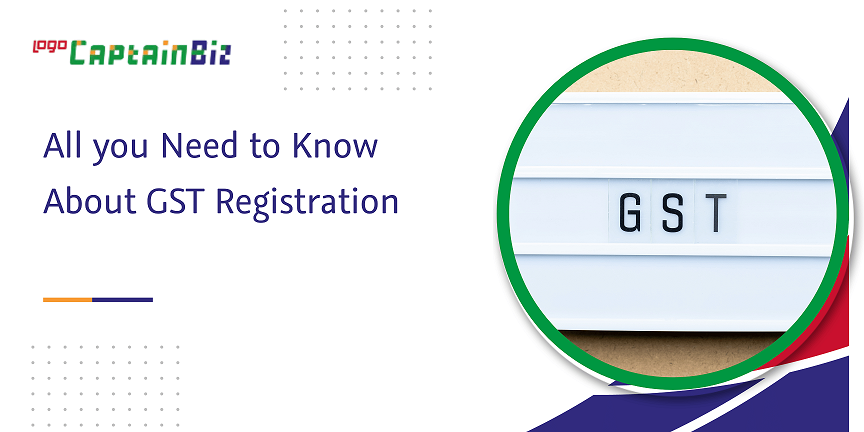Why Choose CFO Account & Services for GST Registration in Singapore: Top Benefits Explained
Why Choose CFO Account & Services for GST Registration in Singapore: Top Benefits Explained
Blog Article
From Beginning To End: A Comprehensive Review of GST Enrollment and How to Efficiently Register Your Organization
Navigating via the elaborate process of GST enrollment can be a crucial action for any type of business wanting to establish compliance and authenticity out there. Why choose CFO Account & Services for GST registration in Singapore. From understanding the basic concepts of GST to meeting the qualification requirements and gathering the needed paperwork, the trip in the direction of effective enrollment can often appear like a daunting task. With the ideal support and insights, companies can streamline this procedure and unlock the advantages that come with being a signed up entity.
Understanding GST and Its Significance
Comprehending the Goods and Provider Tax (GST) and its relevance is essential for businesses running in economies where this taxes system is applied. By allowing services to declare input tax obligation credit scores on the tax obligation paid on purchases, GST makes certain that tax obligations are computed just on the value included at each stage of the supply chain.
In addition, GST promotes compliance and transparency in the tax obligation regime, reducing tax obligation evasion and increasing federal government profits. It simplifies tax management and conformity for organizations by offering an usual platform for tax obligation filing and repayment. In general, an extensive understanding of GST is vital for services to successfully browse the complexities of the tax obligation system and make sure conformity with the law.
Qualification Criteria for GST Enrollment
To register for GST, services should meet particular eligibility criteria detailed by the tax authorities. The main requirement for GST enrollment is that the company's accumulated turnover goes beyond the threshold established by the government, which differs by state. Furthermore, particular organizations, such as those entailed in inter-state supply of items or solutions, laid-back taxable individuals, and non-resident taxed persons, are called for to register for GST regardless of their turn over.
Furthermore, services included in supplying goods or services via ecommerce systems are additionally mandated to sign up for GST, irrespective of their turnover. Moreover, companies that were registered under the previous tax obligation regime, such as VAT, import tax obligation, or solution tax, need to transition their registration to GST. Following these eligibility criteria is critical for services looking for to abide by the GST policies and avoid any kind of penalties for non-compliance.
Records Needed for GST Enrollment
When using for GST enrollment, companies must guarantee they have all the needed documents in order to finish the procedure smoothly and effectively. The crucial documents required for GST registration include proof of company enrollment or consolidation such as the Certificate of Consolidation, partnership act, or registration certificate. In addition, services require to give evidence of address basics for the major workplace, which can be sustained by files like an energy expense or a rental agreement.
Additionally, papers validating the identity and address of the companions or promoters included in the business, such as PAN card, Aadhaar card, or ticket, are essential for GST registration. Savings account declarations or canceled cheques showing the name of the business, address, and account number are likewise compulsory to validate the checking account details offered throughout registration.
Making sure all the necessary documents are in order and readily available will streamline the GST enrollment process and help businesses avoid delays or issues.
Online Enrollment Process for GST

After completing navigate here the kind, supporting papers need to be published based on the standards offered. These files generally consist of evidence of organization enrollment, address evidence, financial institution declarations, and identity proof of the business owner. It is vital to ensure that all documents are clear, legitimate, and posted in the defined style to prevent hold-ups in the enrollment process.
As soon as the application and files are sent, businesses can track the condition of their GST registration online. If there are no problems or added info needed, the GST registration certificate will certainly be released electronically, noting the successful conclusion of the on the internet enrollment process.
Post-Registration Conformity and Tips

Organizations must stay upgraded on any kind of changes in GST regulations, rates, or compliance procedures to make necessary modifications promptly. Seeking specialist assistance from tax experts or accountants can also help companies navigate intricate GST conformity needs efficiently.
Conclusion
In verdict, the process of GST enrollment is necessary for companies to comply with tax policies and operate lawfully. By recognizing the eligibility standards, collecting the required documents, and finishing the online registration procedure, businesses can efficiently register for GST. It is crucial to stay compliant with post-registration demands and look for professional guidance when required to ensure smooth procedures.
Businesses that were registered under the previous tax obligation regime, such as Barrel, excise task, or service tax, should change their registration to GST. The vital documents needed for GST enrollment include evidence of company enrollment or incorporation such as the Certificate of Incorporation, collaboration deed, or enrollment certificate.Upon effective conclusion of the GST registration procedure, businesses should immediately stick to post-registration conformity demands to maintain regulatory compliance and ensure smooth operations.In final thought, Learn More the process of GST registration is vital for companies to abide with tax obligation policies and run legitimately. By understanding the qualification criteria, collecting the essential papers, and finishing the on-line enrollment process, organizations can efficiently register for GST.
Report this page